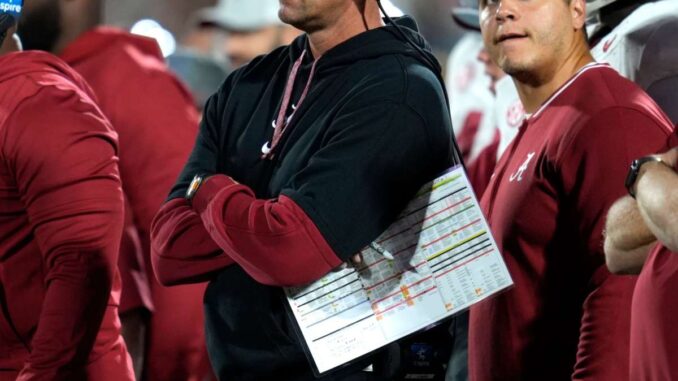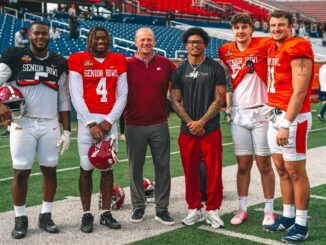
On Friday, January 4th, the Alabama Crimson Tide football program experienced a challenging and pivotal moment following their disappointing bowl loss to the Michigan Wolverines. The Crimson Tide, known for their dominant presence in college football, faced an embarrassing defeat that led to a significant shakeup in the coaching staff. The decision was made to part ways with co-defensive coordinator and defensive backs coach Colin Hitschler, marking a noteworthy change in the team’s leadership.
The loss to Michigan, which ended Alabama’s season on a sour note, exposed several vulnerabilities in the defense that had been building throughout the year. Despite having a wealth of talent, Alabama struggled to contain Michigan’s offense, resulting in a game that was both a physical and mental setback for the program. The Wolverines exploited weaknesses in the secondary, particularly in key moments when Alabama needed to stop Michigan from gaining momentum. The lack of adjustments and inability to execute defensive game plans led many to question the direction of the Crimson Tide’s defense.
Hitschler, who had been with Alabama for a few seasons, was seen as a key figure in the defensive backs unit. Under his guidance, the defensive backs had their ups and downs, but the critical failure in the bowl game appeared to be the breaking point. The Crimson Tide’s inability to limit explosive plays and defend against passing attacks became glaring, and the team’s defensive struggles were simply too much to overlook. As a result, Alabama head coach Nick Saban opted to make a change, which involved moving on from Hitschler.
This decision signals Saban’s commitment to restoring Alabama’s defensive prowess, something that has been a hallmark of the program for years. After a season filled with defensive inconsistencies, Saban understands the importance of revitalizing the unit in order to compete at the highest level of college football. The loss to Michigan wasn’t just a setback on the field; it was a wake-up call for Alabama, especially on defense. While Hitschler’s departure marks the end of an era for the defensive backs, it also opens the door for new ideas and a fresh approach.
For the Crimson Tide, this move comes as part of a broader effort to regain the defensive dominance that has characterized their success under Saban. The defense has always been the backbone of Alabama’s championship teams, and with recruiting classes continuing to be top-tier, the right changes need to be made to ensure that the team remains at the top of the college football world. While Hitschler’s departure is one part of the equation, it signals that Alabama is actively making adjustments as it looks toward the future.
As the program moves forward, questions remain about who will step into the void left by Hitschler. Alabama has long been known for its ability to attract top-tier coaching talent, and the next hire will be critical in shaping the defense’s future success. With a new defensive philosophy potentially on the horizon, the focus for the Crimson Tide will be on restoring their defensive identity and putting themselves back in a position to compete for national titles.



Be the first to comment